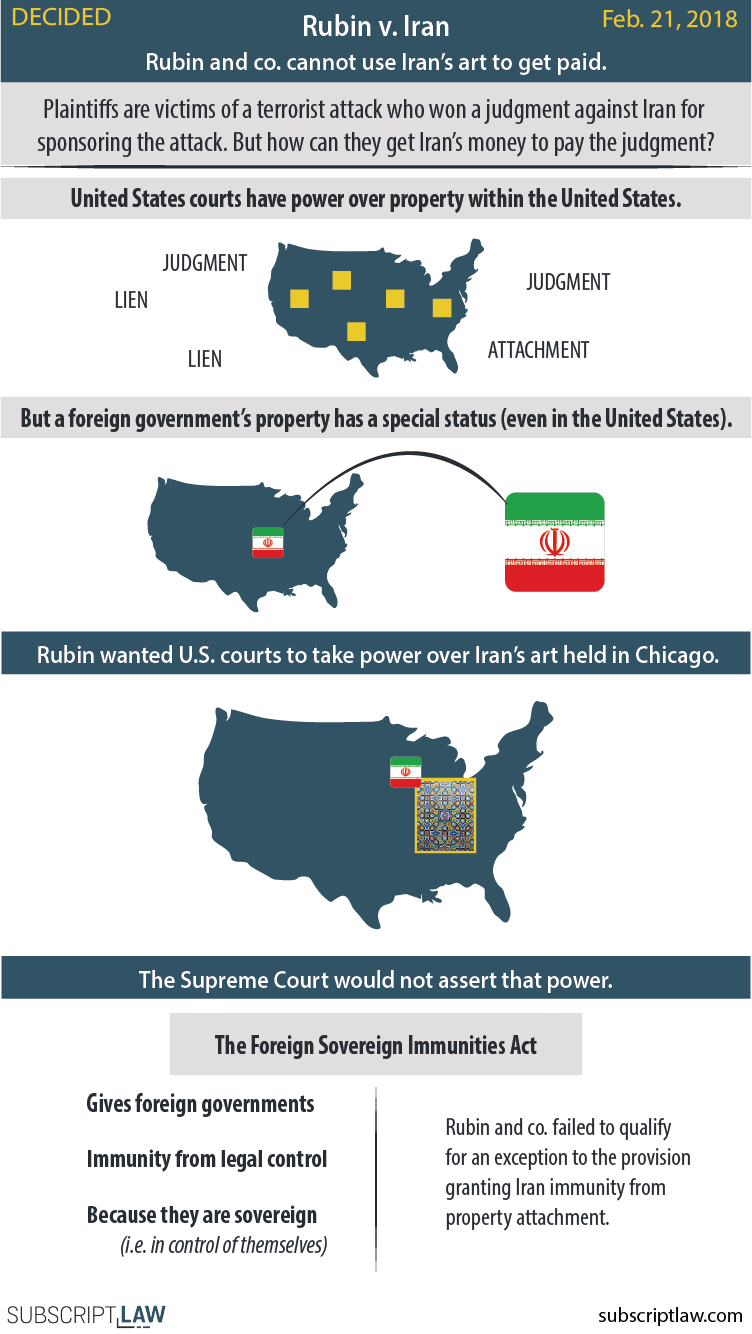Supreme Court refuses to assert power over Iran’s property in the United States.
Rubin and other plaintiffs won a $71.5 million judgment against Iran for Iran’s involvement in sponsoring a terrorist attack. Iran did not show up in court.
In this case, the plaintiffs were trying to get paid.
Sovereignty
Pulling a foreign government into U.S. courts is not a trivial question. We reported on this when we first analyzed this case, but the basic idea is that a foreign nation is sovereign – it rules itself. And requesting a foreign government to be subject to U.S. law is asserting authority (in one sense) over that nation.
Hurdle 1: Getting Iran in court (check)
The plaintiffs were able to get U.S. courts to agree to the lawsuit against Iran because the U.S. law granting Iran immunity from suit (as a sovereign nation) allows exceptions in cases of suspected terrorist activity.
After getting Iran into court and winning the major judgment, the plaintiffs had their next major hurdle ahead: getting paid.
Hurdle 2: Attaching Iran’s property to get paid (fail)
Iran has some valuable historical artifacts held at the University of Chicago and Chicago’s Field Museum of Natural History. The plaintiffs wanted the court to give them the right to use that property to collect on their judgments.
In its decision on Wednesday, the Supreme Court rejected the plaintiffs’ request.
See a more complete report on the arguments in our argument explainer.
SupremeCourt Decisions
See all Supreme Court decisions of this term.




